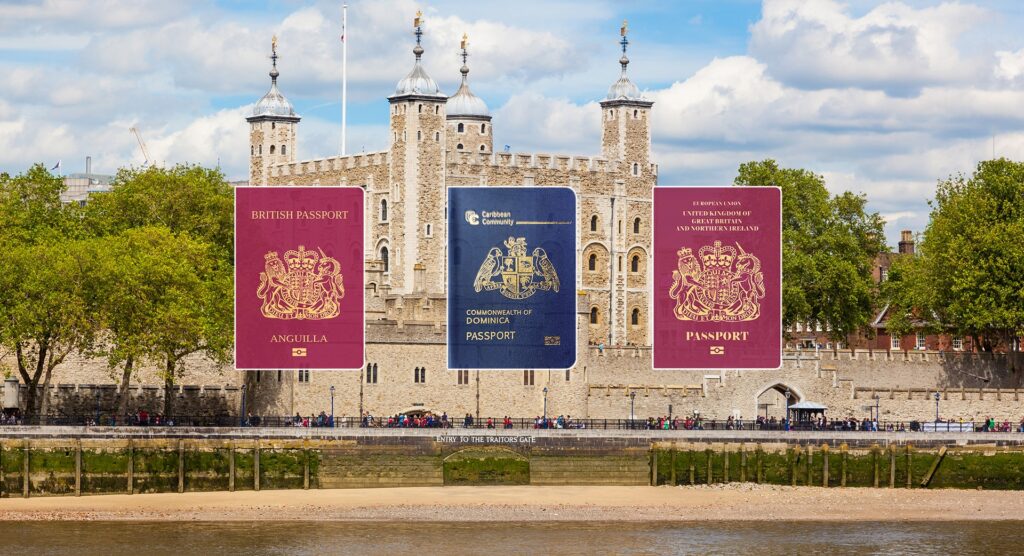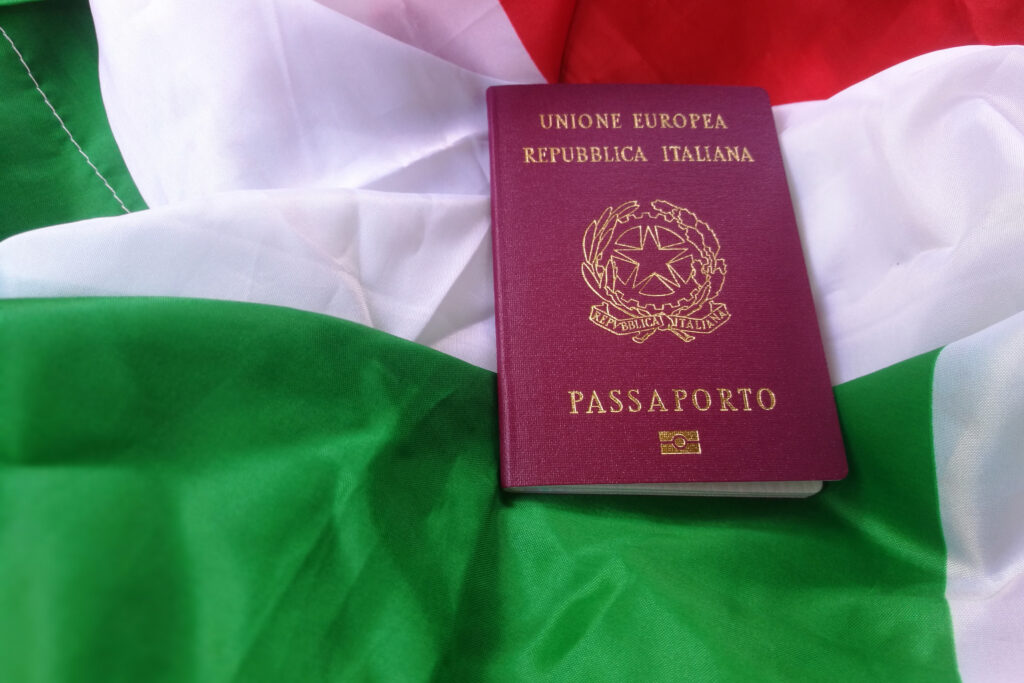Overview
Navigating the complexities of international taxation presents a unique set of challenges, particularly when studying agreements like the Canada-Barbados Tax Treaty. This treaty was big news in the 1980s and has been pivotal for investors and entrepreneurs in Canada and Barbados. When this happened, Barbados became an extension of the Canadian economy. Understanding this tax treaty for Canadians can provide opportunities and tax planning benefits. This article explores how the Canada Barbados tax treaty impacts fiscal strategies and compliance, shedding light on the mechanisms that enable substantial tax advantages and the implications for tax fairness and international relations.
As we further explore the Canada Barbados Tax Treaty, we’ll uncover the layers and implications of this agreement on Canadian taxation and international tax planning. The focus will be on the audit findings that revealed significant capital movement—over 800 million—through strategies that have legally circumvented Canadian tax liabilities. This discussion aims to clarify the treaty’s use in practice, its benefits for tax optimization, and its consequences for tax fairness and the global tax landscape. The intricacies of the Canada Barbados tax treaty uncover critical insights into the world of international taxation and its effects on global financial flows and tax policy.
How Tax Treaties Work
What is a Tax Treaty?
When you’re navigating international finance, understanding tax treaties is crucial. Essentially, a tax treaty is a bilateral agreement made between two countries. Its primary role is to define how the incomes earned across borders are taxed. One of the core features of such agreements is the prevention of double taxation, where both countries tax the same income. This barrier reduction allows for smoother trade and investment between countries.
The Canada-Barbados Tax Treaty is an example of an agreement designed to encourage economic cooperation by ensuring fair tax treatment of entities operating in both jurisdictions. It clarifies tax obligations for Canadians with investments in Barbados and vice versa, promoting transparency and financial predictability.
Purpose of Tax Treaties
The overarching purpose behind tax treaties like the Canada-Barbados Tax Treaty is to foster international trade and investment. By establishing clear rules for taxation, these agreements aim to:
- Avoid the international double taxation hurdle
- Prevent potential tax evasion
- Encourage foreign investment through reduced withholding taxes
- Promote the exchange of information for tax purposes, aligning with global standards like those of the OECD
The impact of these treaties is substantial, as they often lead to changes in tax law to accommodate new international norms and standards for fiscal fairness. Consider this as you evaluate how such treaties could influence your cross-border activities or investments.
Background of the Canada-Barbados Tax Treaty

Understanding the Canada-Barbados Tax Treaty is essential for effectively managing cross-border financial activities. This section delves deeper into the critical elements of the treaty, including its inception, core purposes, and pivotal taxation principles.
When was the Treaty Signed?
The Canada-Barbados Tax Treaty was originally signed in the 1980s to establish a framework for taxing income generated across national borders. Although this agreement has been updated several times over the years, it continues to lay the groundwork for cooperation between the two nations to avoid double taxation, promote fairness, and encourage investment and the exchange of information.
Objectives of the Treaty
Central to the treaty’s objectives is preventing tax evasion and fostering economic relations through transparent taxation regulations. It is designed to:
- Eliminate the risk of double taxation for individuals and entities that operate in both jurisdictions
- Encourage investment by providing predictability and stability in tax obligations
- Facilitate the exchange of tax-related information, adhering to the standards set by the OECD
- Bolster international trade by creating a more favourable business environment
Results of the Treaty
The Canada-Barbados Tax Treaty, intended to prevent double taxation, has led to significant tax implications, especially for Canadian insurance companies and other industries. These entities have formed subsidiaries in Barbados to capitalize on lower tax rates, legally reducing their tax liabilities in Canada. This strategy, while lawful, has sparked debate over its alignment with the treaty’s intended spirit, as it results in notable tax revenue loss for Canada.
Other industries emulating this approach have further amplified the impact, prompting discussions on the need for stricter regulations to mitigate potential treaty abuse. This situation underscores the complex dynamics of international tax agreements and the necessity for ongoing reassessment to balance international business growth with fair tax collection.
Taxation Principles in the Treaty
The treaty outlines several key principles that govern the taxation of income, ensuring that taxpayers are treated equitably:
- Capital gains derived by a resident of Barbados from the disposition of assets in Canada may be exempt from Canadian tax, aligning with Barbados’ policy of not taxing capital gains.
- Anti-avoidance measures are in place to prevent exploitation of the treaty, ensuring that entities cannot use the agreement solely to gain untaxed revenue.
- With updates to the treaty, special attention is given to international business companies and similar entities, ensuring compliance with current tax agreement standards.
Through these principles, the Canada-Barbados Tax Treaty aims to mitigate double taxation and tax avoidance issues while establishing a cooperative framework for fiscal matters between the two nations.
Key Provisions of the Treaty

Understanding the key provisions of the Canada-Barbados tax treaty, also known as the Barbados Canada tax treaty, is essential for effectively managing cross-border financial activities. This treaty has several integral components designed to clarify tax obligations and provide relief from double taxation.
Definition of Residence
The treaty sets out specific criteria to establish where an individual or entity is considered resident for tax purposes, which is fundamental in applying the treaty’s provisions. If you have a permanent home in either Canada or Barbados, that’s your first indicator of residency. However, if you have a home in both states or in neither, habitual abode comes into play, followed by nationality. In cases where your residence status isn’t clear, the competent authorities from both Canada and Barbados will determine your tax residence through mutual agreement. It’s important to note that being subject to tax by one state on the basis of domicile, residence, or similar criteria is essential to being considered a resident under the treaty.
Elimination of Double Taxation
One of the primary purposes of the Canada-Barbados tax treaty is to mitigate the risk of the same income being taxed twice. The method laid out for preventing double taxation is straightforward:
Reduced Withholding Taxes
The treaty also facilitates economic exchange by reducing withholding taxes on dividends, interest, and royalties. If you receive such payments from entities in either country, the tax withheld at source might be less than without the treaty. The biggest advantage for Barbados residents is that Canadian-sourced dividends are reduced from 25% for non-treaty countries to 15% in Barbados. This offers significant savings for investors who own real estate or business in Canada. Ultimately, this reduced WHT encourages investment and financial transactions between the two nations by making them more tax-efficient. Such reductions in withholding tax rates benefit individuals and corporations, promoting a more favourable environment for cross-border investment and financial operations.
In the context of dividend payments specifically, the Barbados Canada tax treaty allows for dividends from active business income earned by foreign affiliates in Barbados to be exempt from Canadian tax when distributed to residents, be it individuals or companies. These treaty provisions recognize the complexity of international finance and aim to support a smoother flow of capital and transactions between Canada and Barbados.
Benefits for Businesses

Avoidance of Double Taxation on Business Income
When you’re navigating the complexities of international business taxation, the Canada Barbados Tax Treaty serves as a crucial tool in your arsenal. At its core, this treaty prevents the double taxation of income that could occur when businesses operate across Canadian and Barbadian borders. Let’s break down the mechanics: fundamentally, if you earn business income in Barbados, the tax you pay there will be credited against any Canadian tax payable on the same income. It ensures that profits, income or gains derived from sources within Barbados aren’t taxed twice – once by each jurisdiction – thereby reducing the overall tax burden on businesses.
The mechanism in place is straightforward. Should you pay tax in Barbados on certain income, tax relief takes the form of a deduction from the Canadian tax you owe on that same income. It aligns with the general principle that while each country retains the right to tax income sourced within its borders, the Treaty provides relief to maintain fairness and avoid over-taxation.
Prevention of Tax Evasion and Tax Avoidance
The Canada Barbados Tax Treaty alleviates tax burdens and guards against fiscal evasion. Tax evasion and avoidance schemes undermine revenue collection and the economic well-being of both countries. The Treaty signals a shared commitment to financial integrity by including robust provisions to combat these practices.
One crucial part of this framework is the exchange of information article, modernized to meet today’s standards. This facilitates transparency and cooperation between Canadian and Barbadian tax authorities. If your business engages in operations in both jurisdictions, rest assured that there’s an overarching structure aimed at preventing improper use of the tax treaty.
The Limitation of Benefit (LOB) provision has been expanded to include a broader class of persons and entities, significantly mitigating the risk of treaty shopping – a practice where businesses channel investments through jurisdictions like Barbados merely to exploit the tax benefits. This ensures that only residents who genuinely meet the necessary conditions can benefit from the Treaty provisions.
The partnership between Canada and Barbados aims for a level playing field where businesses can thrive without the spectre of dual taxation or the exploitation of the tax system. Whether your enterprise is small or large, the Treaty offers a sturdy foundation for cross-border financial activities.
Impact on Individuals and Investors

When considering the intricacies of the Canada Barbados Tax Treaty, it’s crucial to understand how it affects individuals, particularly regarding employment and investment income.
Tax Treatment of Employment Income
Navigating tax obligations can be complex, especially when you’re working across borders. Under the Canada Barbados Tax Treaty, your employment income is generally taxable only in your country of residence. However, if you’re a resident of one contracting state but work in the other, the income for your services may be taxed in the state where the employment is exercised. There is an exemption to this rule, though:
- The remuneration is tax-free in the country of work if it does not exceed CAD 5,000 or its equivalent in Barbadian currency annually.
- Or if your presence in the country of work is less than 183 days in the calendar year and your employer is not a resident or has a permanent establishment in that country.
Remembering tax treaties are designed to avoid dual taxation and promote fiscal efficiency is key. So, suppose you’re a Canadian working in Barbados or vice versa. In that case, the Canada Barbados Tax Treaty ensures that your income is not taxed twice and you comply with the tax obligations in an orderly manner.
Tax Treatment of Investment Income
Investment income often includes dividends, interest, and royalties, which can be subject to taxation in both the country of the source and the investor’s country of residence. The Canada Barbados Tax Treaty also works to prevent the double taxation of this income. For dividends, there’s a cap on the withholding tax that may be levied by the source country, fostering more favourable conditions for cross-border investments.
The treaty stipulates that the withholding tax rate on dividends paid to a resident of a contracting state shall not exceed 15% (25% for non-treaty jurisdictions), provided that the beneficial owner of the dividends is a resident of the other contracting state. Nevertheless, factual assessments and proof of tax payment or remittance in Barbados are required to secure these benefits; otherwise, treaty benefits could be denied.
The treaty’s provisions foster a favourable climate for Canadians and Barbadians seeking to invest across borders. By offering clearer pathways for tax compliance and protecting your investment returns, the Canada-Barbados Tax Treaty encourages economic interchange between the two nations, ultimately benefiting individual investors.
Potential Challenges and Controversies

As you navigate the complexities of the Canada-Barbados Tax Treaty, it’s important to be aware of the potential challenges and controversies that may arise. This section delves into the intricacies of transfer pricing and the crackdown on treaty shopping, two areas that have become significant in conversations about international finance and taxation.
Transfer Pricing Concerns
The concept of transfer pricing concerns is undoubtedly contentious when discussing the Canada Barbados Tax Treaty. Transfer pricing relates to the rules and methods for pricing transactions within and between enterprises under common ownership or control. Due to differing tax rates and regulations between countries, there’s an inherent risk of profit shifting to lower tax jurisdictions like Barbados, which can undermine tax revenues in Canada.
The complexity of transfer pricing regulations often leads to tax disputes and requires meticulous documentation and reporting from the entities involved. With tax authorities intensifying the scrutiny of cross-border transactions, businesses must ensure that their transfer pricing policies comply with both Canadian and Barbadian legislation. Any inconsistency or deviation could result in a reassessment of taxes and penalties.
Treaty Shopping Crackdown
Another significant aspect of the Barbados Canada Tax Treaty is the ongoing crackdown on treaty shopping. Treaty shopping involves structuring a business to take advantage of favourable tax treaties with certain jurisdictions, even when the core operations are not genuinely tied to those regions. Essentially, it’s a strategy employed to reduce tax liabilities artificially.
International authorities are actively working to prevent treaty shopping to ensure that legitimate residents and businesses enjoy the benefits of tax treaties. The treaty’s Limitation of Benefits provision is central to these efforts, designed to prevent entities from exploiting the system. Tax authorities may reassess and collect taxes from those who are found to be engaging in treaty shopping through mechanisms like the General Anti-Avoidance Rule (GAAR) in the Income Tax Act.
With the Canadian government looking to renegotiate income tax treaties, including the one with Barbados, with a total of 23 nations, it’s clear that addressing treaty shopping is high on the agenda. This renegotiation process may lead to tighter clauses that further deter the use of treaty shopping to evade proper tax obligations. Businesses must be cognizant of these changes and align their operations accordingly to avoid falling foul of emerging tax treaty regulations.
Conclusion

Navigating the complexities of international taxation can be daunting. Hopefully, this article on the Canada-Barbados Tax Treaty will simplify this for businesses and investors. You’ve seen how this treaty lays the groundwork for a more straightforward tax landscape, offering clarity on residency, relief from double taxation, and reduced withholding taxes. You must stay informed and compliant with these regulations to fully leverage the benefits. Remember, with the evolving nature of tax laws, keeping on top of changes and challenges such as transfer pricing and treaty shopping is crucial. Doing so will ensure that your cross-border investments are profitable and aligned with international tax standards.
Frequently Asked Question (FAQ)
1. What benefits does the Canada-Barbados Tax Treaty offer to individual Canadian investors?
The Canada-Barbados Tax Treaty primarily benefits Canadian investors by preventing double taxation on income earned in Barbados, including dividends, interest, and royalties. For instance, the treaty reduces the withholding tax on dividends from 25% to 15%, offering significant savings. It ensures that investors are not taxed twice on the same income, providing a more favourable environment for cross-border investments.
2. Can Canadian businesses reduce their tax burden by operating in Barbados under this treaty?
Canadian businesses can legally reduce their tax burden by operating in Barbados, thanks to the treaty’s provisions. By establishing subsidiaries in Barbados, businesses can benefit from lower tax rates while crediting the tax paid in Barbados against Canadian tax obligations. This arrangement encourages economic activity between the two countries but has sparked debate regarding its impact on Canadian tax revenue.
3. Are there any risks or downsides for Canadians using the treaty for tax planning?
While the treaty offers many advantages, there are potential risks, including scrutiny for tax avoidance practices. The treaty includes anti-avoidance measures to prevent exploitation solely for tax benefits. Canadians must ensure their operations comply with these measures to avoid penalties or reassessment. Additionally, the international crackdown on treaty shopping could affect those attempting to reduce tax liabilities through the treaty artificially.
4. How does the treaty impact the taxation of Canadian expatriates living in Barbados?
Canadian expatriates living in Barbados benefit from the treaty through the clear definition of tax residency, which helps prevent double taxation. Expatriates’ income from employment or business conducted in Barbados is typically taxed only in Barbados unless specific exceptions apply. This clarity ensures that expatriates understand their tax obligations and can plan their finances accordingly.
5. What should Canadians do if they believe the treaty’s benefits are not being applied to their situation?
Canadians who believe they are not receiving the treaty’s intended benefits should first review their situation to ensure compliance with all conditions and requirements. If discrepancies persist, consulting with a tax professional experienced in international taxation is advisable. In some cases, engaging with the Canadian Revenue Agency (CRA) or its Barbadian counterpart may be necessary to resolve issues. Proactive communication and documentation are key to ensuring treaty benefits are correctly applied.
Learn More
Offshore Freedom™ is a boutique coaching and consulting firm that helps investors and entrepreneurs live and invest internationally. We help our clients grow their businesses, pay less taxes, buy more real estate, and take advantage of global residency and citizenship by investment programs worldwide.
Schedule a 1 on 1 consultation with Dan Merriam, and let us help you design the life of your dreams and live the Offshore Freedom™ lifestyle. Ask questions and get answers about international real estate, tax planning, offshore banking, second residencies, citizenship by investment, lifestyle design and more.
This article is for informational purposes only; it should not be considered financial, tax planning, investment or legal advice. Consult a certified financial or investment professional in your jurisdiction of interest before making any major financial or investment decisions.
Writer in Tax Reduction, International Tax Planning, Travel, Citizenship by Investment, The Caribbean, Barbados Tax, Canada Barbados Tax Treaty, Second Residence, Real Estate Investing, Asset Management, Lifestyle Planning, Countries with the Lowest Taxes, Company Formation, Offshore Banking, Asset Protection, Technology, Entrepreneurship


















